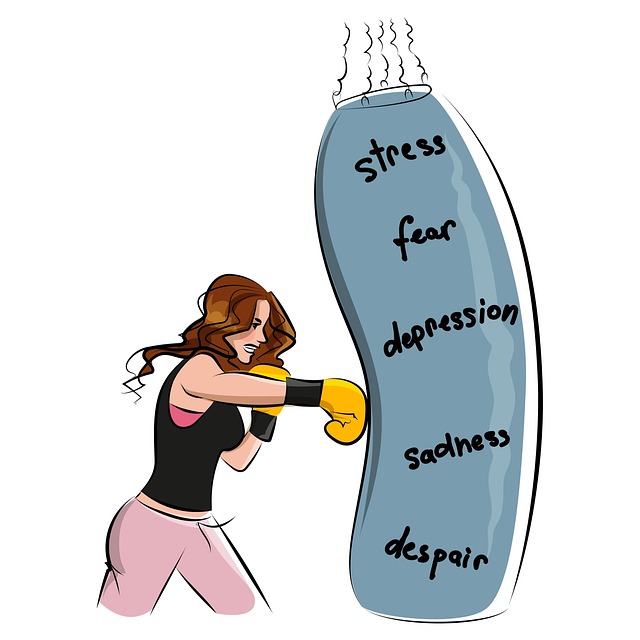Mental health professionals face burnout and stress, impacting patient care. Boulder Therapy offers a unique solution combining nature immersion, self-care, and empathy building techniques to enhance therapists' resilience and well-being. By integrating these practices into risk management plans, clinicians can improve client relationships, manage intense emotions, and maintain a healthy work-life balance, making Boulder Therapy for Therapists-Clinicians an effective strategy for holistic mental health care.
Mental health professionals (MHPs) often shoulder intense emotional burdens, making robust risk management planning crucial for their well-being. This article explores the unique risks faced by MHPs and provides a comprehensive guide to implementing effective strategies. We delve into Boulder Therapy as a powerful tool, offering evidence-based practices to enhance resilience and mitigate work-related stress. By combining evidence and innovative techniques like Boulder Therapy for therapists and clinicians, this resource empowers professionals to navigate their careers with greater balance and satisfaction.
- Understanding the Unique Risks Faced by Mental Health Professionals
- Implementing Effective Risk Management Strategies: A Comprehensive Approach
- Boulder Therapy as a Tool for Clinicians: Enhancing Resilience and Well-being
Understanding the Unique Risks Faced by Mental Health Professionals

Mental health professionals, such as therapists and clinicians, encounter unique challenges that can impact their well-being. In addition to managing client caseloads and adhering to ethical guidelines, they often deal with intense emotions on a daily basis, including those experienced by their clients. This constant exposure to trauma, anxiety, depression, and other mental health issues can take a toll on the professionals themselves. Burnout is a significant risk, leading to decreased job satisfaction and potential harm to client relationships.
Boulder therapy offers a unique approach to addressing these risks, focusing on self-care and resilience. Through this form of therapy, mental health practitioners learn empathy building strategies and conflict resolution techniques that enhance their ability to manage intense emotions. Moreover, integrating practices for self-esteem improvement can foster a healthier sense of self, enabling therapists and clinicians to better navigate the emotional demands of their work.
Implementing Effective Risk Management Strategies: A Comprehensive Approach

Implementing effective risk management strategies is paramount for mental health professionals to safeguard their well-being and enhance patient care. It involves a comprehensive approach that goes beyond mere crisis intervention, focusing on proactive measures to mitigate potential risks. For therapists and clinicians in Boulder, integrating practices like empathy building strategies into their routines can foster deeper connections with clients while strengthening their resilience.
Moreover, embracing tools such as mental wellness journaling exercise guidance and even producing a mental wellness podcast series allows professionals to process complex cases, track client progress, and share valuable insights. These creative outlets not only promote self-care but also contribute to a supportive community, fostering a culture of open dialogue around mental health challenges, ultimately benefiting both the therapists and their clients.
Boulder Therapy as a Tool for Clinicians: Enhancing Resilience and Well-being

Boulder Therapy offers a unique and innovative approach to enhancing resilience and well-being among mental health professionals. This therapeutic method leverages the power of nature and physical activity to support clinicians in managing stress and preventing burnout, which are significant challenges in their field. By incorporating Boulder Therapy into their practice, therapists can foster a sense of grounding and self-care, ultimately improving their ability to provide effective treatment.
The integration of Boulder Therapy into risk management planning for mental health professionals is strategic. It encourages clinicians to prioritize their own mental and physical health, which is essential for maintaining a healthy work-life balance. Through regular sessions, therapists can develop coping mechanisms that promote resilience against the emotional demands of their jobs. This holistic approach not only benefits individual practitioners but also enriches their interactions with clients, fostering more meaningful therapeutic relationships.
Mental health professionals, like all caregiving professionals, face unique risks that can impact their well-being. By understanding these specific challenges and implementing a comprehensive risk management strategy, therapists and clinicians can enhance their resilience and maintain optimal mental health. Integrating Boulder Therapy as a tool offers a promising approach to fostering a healthier work-life balance for these essential care providers. Through combining evidence-based practices with mindfulness techniques, professionals can navigate the complexities of their roles more effectively, ultimately benefiting both their personal lives and the clients they serve.









